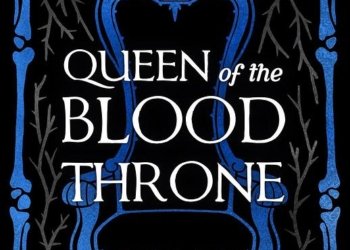No products in the cart.
A Brightness Long Ago by Guy Gavriel Kay
“We like to believe, or pretend, we know what we are doing in our lives. It can be a lie. Winds blow, waves carry us, rain drenches a man caught in the open at night, lightning shatters the sky and sometimes his heart, thunder crashes into him bringing the awareness he will die. We stand up, as best we can under that. We move forward as best we can, hoping for light, kindness, mercy, for ourselves and those we love. Sometimes these things come, sometimes they do not.”
Gavriel Guy A Brightness Long Ago by Kay is a masterpiece and may be the best piece of writing ever produced by one of the greatest living storytellers. Setting her story in the fictional nation of Batiara, which serves as a close approximation of 15th-century Italy, Kay deftly moves through a convoluted plot while creating a large cast of well developed characters. The reader encounters some of the same events from many points of view, getting varied insights that contribute to the richness of the story.
Because most of the action centres on the charismatic antagonists mercenary captains Folco d’Acorsi and Teobaldo Monticola di Remigio, neither of whom can be categorically classified as good or wicked, the plot is reminiscent of The Lions of Al-Rassan. They had spent decades fighting on opposing sides of the front lines after making careers out of being hired by strong city-states to wage war and enlarge their employers’ borders. They have a long history of hatred.
But d’Acorsi and di Remigio aren’t the only focus of the narrative. Although these historical events cast a huge shadow throughout the entire novel, Kay opts to focus most of the narrative on individuals who dance on the periphery of them. Although the majority of these individuals won’t be mentioned in history books, their impact on the globe is no less significant. These lesser-known players on the periphery are change agents, and their desires unintentionally influence how the world is shaped.
“An encounter on a springtime road. The random spinning of fortune’s wheel. It can sway us, change us, shape or end our days.”
Guidanio Cerra is the primary first-person point of view character in the narrative; we begin and conclude with his narrative because his sections of the book are shared memories from his later years. Adira Ripoli, a noblewoman’s daughter, breaks convention by participating in high-stakes horse races and adrenaline-fueled murder operations. Jelena, a healer who practises pagan religion and has a mystical sixth sense of the afterlife, frequently encounters important individuals who are close to passing away. As their lives flit in and out of some of the most significant times in the history of the country, we spend time with dukes, High Patriarchs, scholars, soldiers, and a wide range of other characters. Some develop. Others pass away.
The effects of rash decisions and the havoc they cause are a recurring theme in Kay’s narrative. Even though one may not give it much thought at the moment, decisions like staying in a corridor for an extra minute or turning your horse north rather than south can have far-reaching effects. It’s interesting how Kay refutes this idea by raising the prospect of supernatural intervention. This is one of the very few instances in the book that “low fantasy” territory is crossed, depending on your level of faith. It challenges the reader to think about if God exists and whether He has anything to do with impulsive behaviour and its frequently disastrous results.
The novel has an intermission that seems extremely personal around the midway mark. By breaking the fourth wall and making observations about the nature of stories, how they are delivered, how they spread, and how the reader participates in the experience of it all, Kay exposes himself. It appears as though Kay is imparting the knowledge he has amassed from a lifetime of writing for a global readership.
This tale is horrifying, tragic, and lovely. Kay uses beautiful, straightforward language that is yet incredibly profound since it gets right to the heart of what motivates our thoughts, actions, and memories. You can think you know where the plot is going, just to repeatedly be proven wrong. More often than I want to confess, tears were shed when reading and rereading passages. I think I’ll read A Brightness Long Ago again and again throughout my life in the hopes of gaining fresh insights when my memories shift or linger and my emotions deepen or ebb.
“Shelter can be hard to find. A place can become our home for reasons we do not understand. We build the memories that turn into what we are, then what we were, as we look back. We live in the light that comes to us.”
The Review
A Brightness Long Ago
9.3 Score
Guy Gavriel Kay is truly one of the best authors. He takes the history we've glimpsed and turns it into a poignant, life-altering story about people we "know" and care about. He continues to bring in threads from characters in past books and we always return to Fionivar, in some way. Lastly, he depicts the 3 primary monotheistic religions of our world in a way that helps us all SEE others and to value their beliefs, even if they are not our own.
PROS
- Great story AND you'll learn something about yourself.
- Might be my favorite GGK novel.
- Kay delights again.
- Small actions with big consequences.
CONS
- Ineffective characterization. Poor plot.
- Unbelievable world-building.
- Like Reading a Trite Fantasy Written by Yoda.
- A confused jumble of concepts, poorly told.











